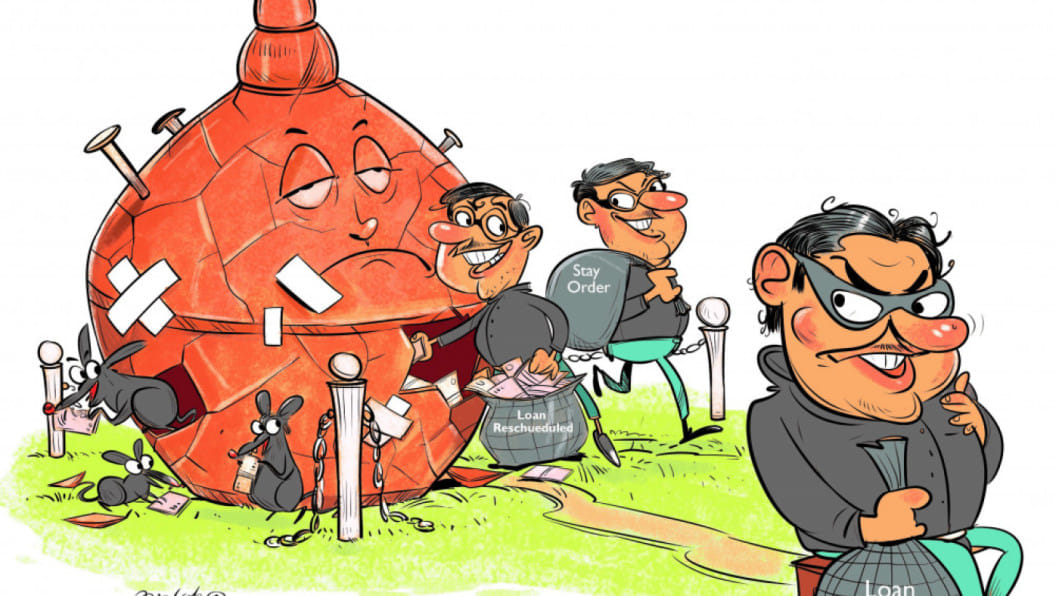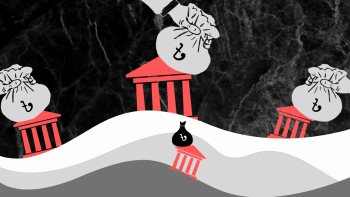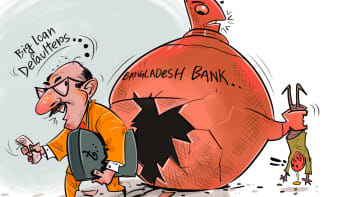Financial sector reforms necessary to get rid of default loans

Default loans are not something new when it comes to the country's banking sector. The problem has persisted ever since Bangladesh's independence, and attempts have been made on numerous occasions to resolve the issue. Back in the 1990s and in 2001 or 2002, the problem was reduced to some extent by introducing a number or financial reforms. The downward trend in default loans continued till 2011.
However, in later years, due to the shortcoming in governance, and lack of discipline in the financial sector, scams of a massive scale involving default loans were identified. This eventually re-established the culture of default loans in the country once again.
Even though the amount of our default loans is over Tk 130,000 crore, according to the government accounts, IMF suggests it is almost over Tk 300,000 crore. However, what remains outside of the government's calculations is the thousands of crores of money currently stuck at the country's ports, which the banks can never recover.
Another excluded element is the political influence used by loan defaulters. Politically influential defaulters do not repay their loans on time; however, by using their influence, they can reschedule the deadline of repayment and turn the schemes into medium or long-term loans. Under such an arrangement, an unpaid loan taken over 20 years ago does not fall under the category of default loans, as the loanee clears a small portion of the repayment – a mere two to five percent – but never repays the full amount. This was the case a few years ago when such loans were systemically prevented from going under the default criteria. However, the crisis only aggravated after that.
Some other catalysts have also been added to the crisis. During the Covid-19 pandemic, over Tk 200,000 crore was given as loans under an incentive scheme by the government. However, the money was distributed by banks, whereas the government only provided some subsidies. This huge amount of money eventually turned into default loans, where the loanees have shown their reluctance in repaying the money they got as "incentives."
These loan defaulters remain free of consequences as the government continues to stay silent and take no actions against them. They roam freely, in both the country and abroad, where they continue to buy property with smuggled money.
And that is a massive amount of money that we are talking about. We have no hopes of getting it back as the money might not even be in the country. If nothing is done about this situation, the amount of all default loans combined will continue to increase.
What the government can do in this regard is ensure good governance. We have to come out of the social liability or tendency to give in to political pressure and start enforcing the law properly. It has to be a level-playing field, where the law is the same for everyone, regardless of their political identity. This is the only way of getting out of the culture of default loans.
The weaker banks need to be taken over by the government to get rid of corrupt decision-makers. If need be, these banks have to be merged into one, or just the number can be decreased by giving back the money to depositors. These banks will only weaken the entire banking sector if left without any intervention.

In my opinion, if we want to revive the country's economy, we need to pay attention to our financial sector, which is one of the most backward sectors in the country. The banking sector itself is in a disastrous position. The return on assets is decreasing, so is the return on equity – which has seen a massive decrease from the previous 26 percent to a current 4.5 to 5 percent.
Investors who have invested in the banks' stocks are not getting proper returns. Banks are being used as a tool of economic oppression, where the directors are sharing the money among themselves but the real investors are being deprived of the benefits.
At this moment, the government needs to introduce major reforms. If we fail to ensure good governance, we will fail to make economic development a reality. The financial sector has a big role to play in this regard. The stock market, along with the banking sector, and the bond and insurance markets need massive development. If the banking sector is reduced to a mere tool of economic oppression and exploitation by a chosen few, there is no hope for us to take the country forward.
Dr Ahsan H Mansur is Executive Director of Policy Research Institute of Bangladesh (PRI).

 For all latest news, follow The Daily Star's Google News channel.
For all latest news, follow The Daily Star's Google News channel. 










Comments